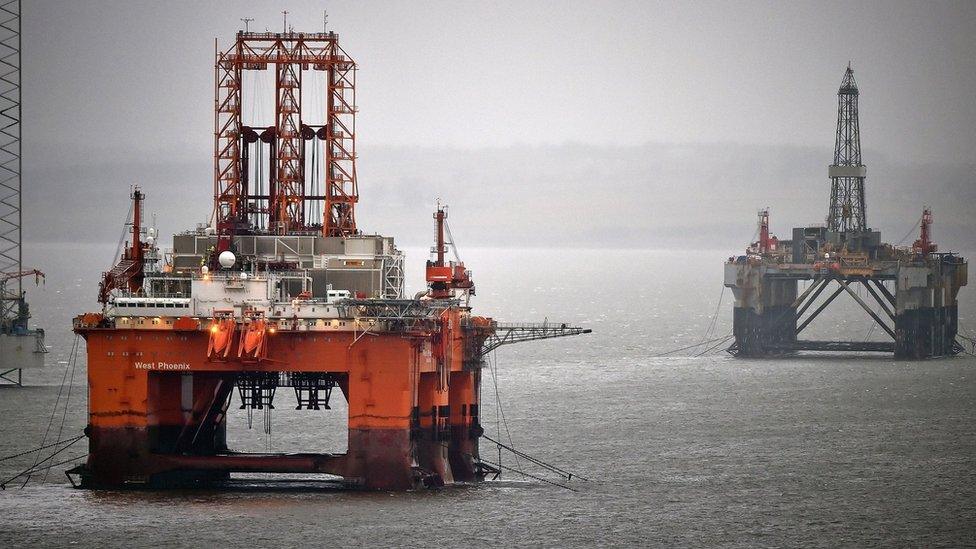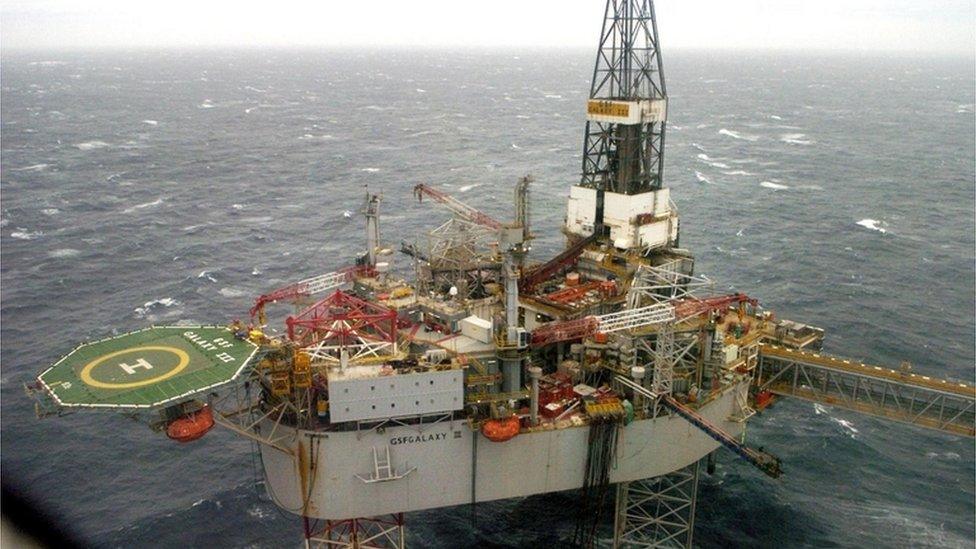Oil and Gas Survey finds crisis 'nears turning point'
- Published

More than two thirds of oil and gas firms cut jobs last year - but there are signs the crisis may be approaching a turning point, a survey has found.
The 25th Oil and Gas Survey found 67% of north east Scotland businesses had shed staff at a faster rate than at any time in the survey's history.
But a similar proportion felt the sector had reached "rock bottom" and the rate of job cuts would now slow.
More than 40% had cut pay or changed benefits to cope with low oil prices.
The survey, conducted by Aberdeen & Grampian Chamber of Commerce in partnership with the Fraser of Allander Institute, canvassed the views of 130 businesses, employing more than 308,000 UK staff in total.
The findings included:
Operators reduced their workforce by 15% on average last year; for contractors the figure was 7%
Expectations of further job cuts have eased during the year. Operators now expect to shed a further 5% of jobs next year while contractors predict a 1% reduction
Two out of three respondents believe the sector has already reached the bottom of the current cycle, or will do so in the next year. A further 25% felt the low point would be hit within two years
43% had managed to reduce costs in the past year, many of them by as much as 10%
A rising number of firms (40%) reported making significant changes to terms and conditions, including changes to shift patterns, working hours, pension contributions and other benefits
79% thought it possible they would be involved in decommissioning in the next three to five years, while 53% thought they could be involved in renewables
70% expected to be involved in unconventional oil and gas activity (fracking) in the UK
Most firms (58%) felt the Brexit vote would have no impact but 31% expected it to have a negative impact
91% said the oil price fall since 2014 had a negative impact on their businesses
James Bream, research and policy director at Aberdeen and Grampian Chamber of Commerce, said: "We're likely to remain in an uncertain position through 2017 and 'the bottom' will arrive at different times and feel different for each company.
"It is clear that companies are striving to become fitter, leaner and they are working hard to look for new markets to secure their future and employment levels where that is within their control.
"There is no question of complacency in the north east and our brilliant people will continue to demonstrate that the oil and gas sector should be considered a success story in generating economic value for the UK economy."
The survey was conducted in September.
Chemical discharges
Meanwhile, the UK's oil and gas industry has claimed chemical discharges to sea and emissions to the air have continued on a downward trend over the last 15 years.
Trade body Oil & Gas UK said the average oil-in-water concentration last year was less than half of the recommended limit set by the OSPAR Commission., external
That was despite the industry's first increase in production since 2000.
The findings are contained in Oil & Gas UK's Environment Report 2016., external
Mick Borwell, health, safety and environment policy director with Oil & Gas UK, said: "The environment report comes at a challenging time for the UK oil and gas which is working extremely hard to navigate through the downturn, while maintaining environment and safety standards.
"Despite the UK Continental Shelf being a mature basin with technically challenging production, the overall trend for the last 15 years is downwards for discharges, emissions and accidental releases. Put simply, we are using the same amount of chemicals and emitting less CO2 in the production of more oil and gas.
"Industry is committed to minimising the effect on the natural environment and all operators have an environmental management system which is designed to minimise environmental effect."
- Published31 October 2016

- Published19 October 2016
